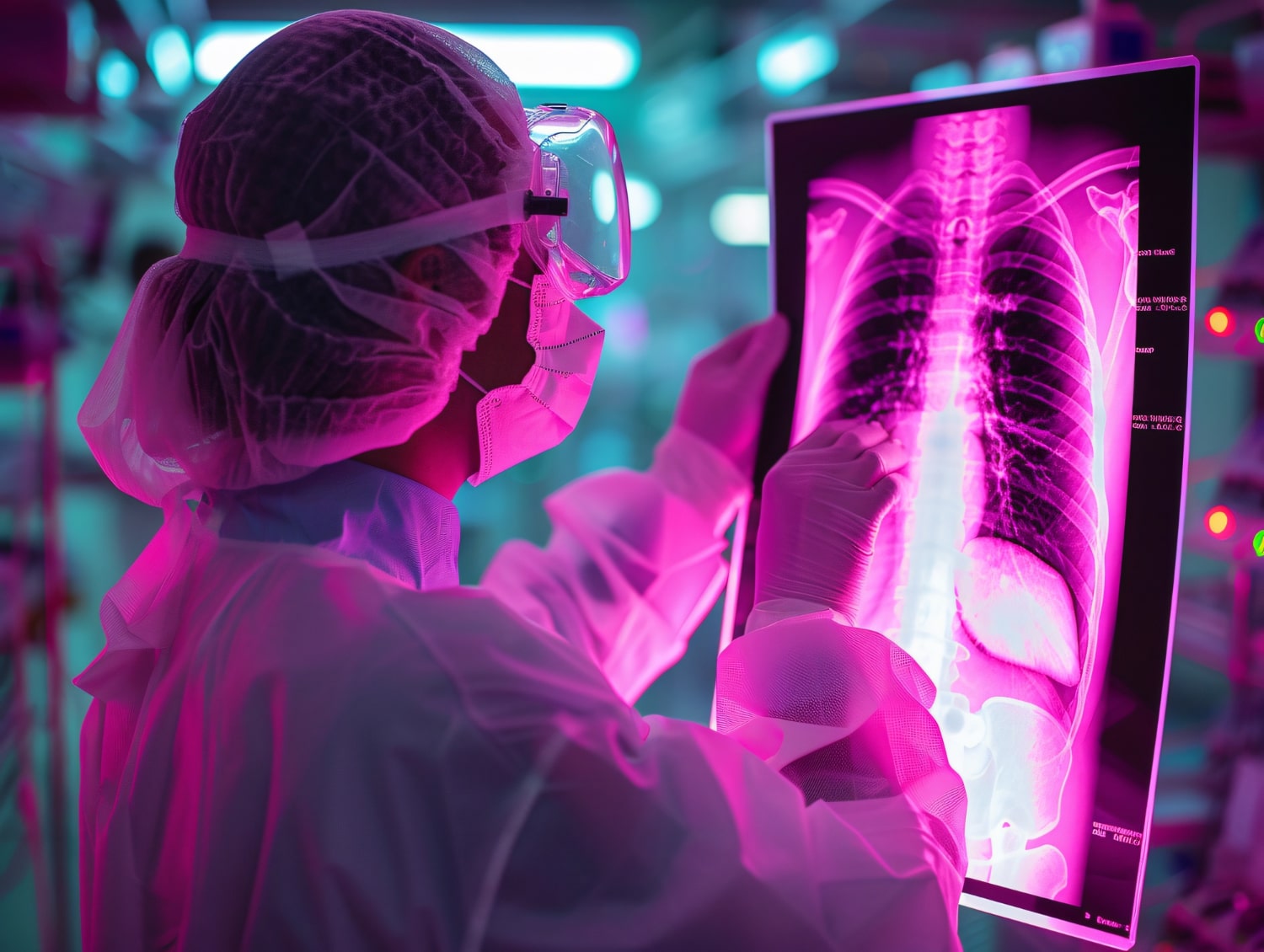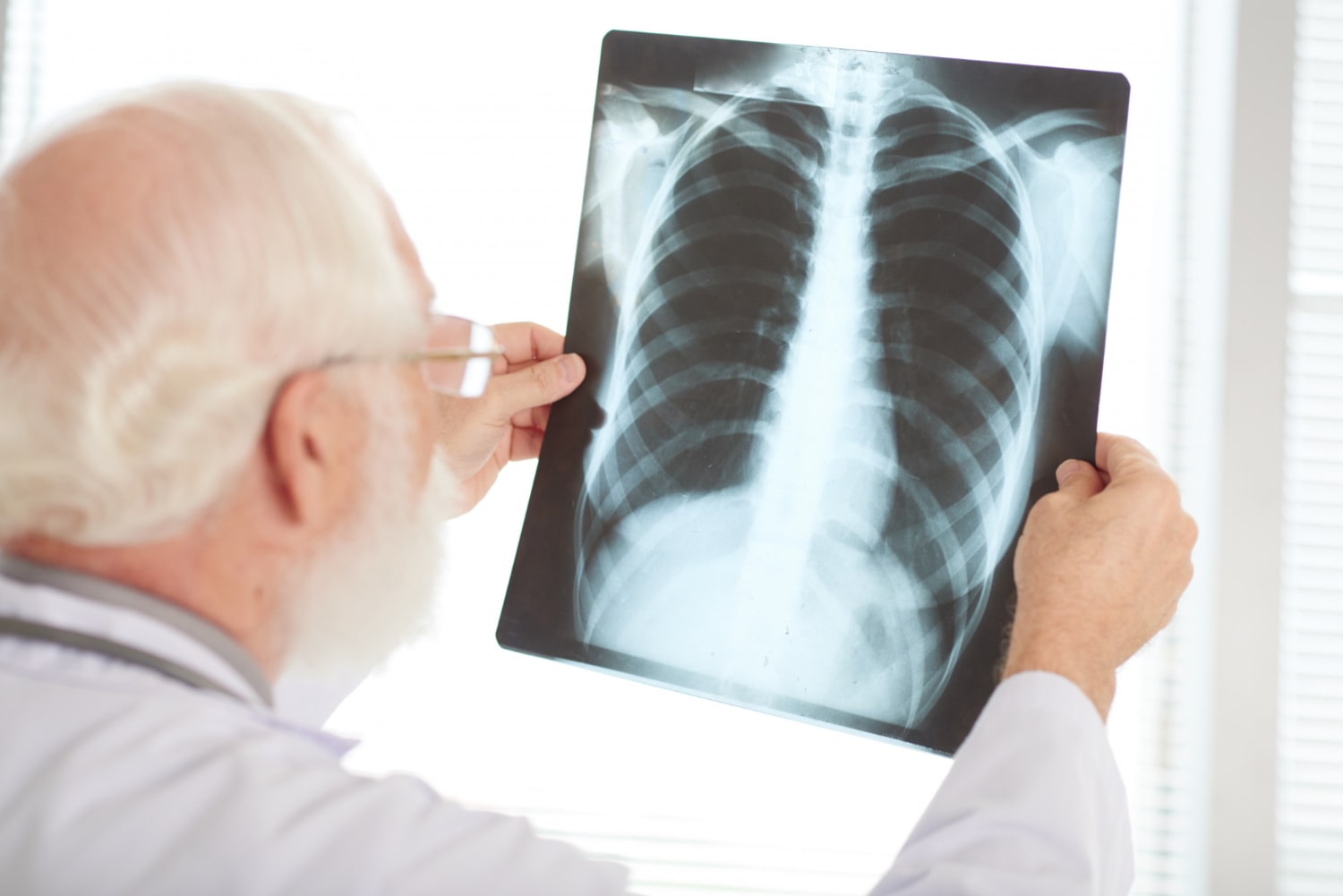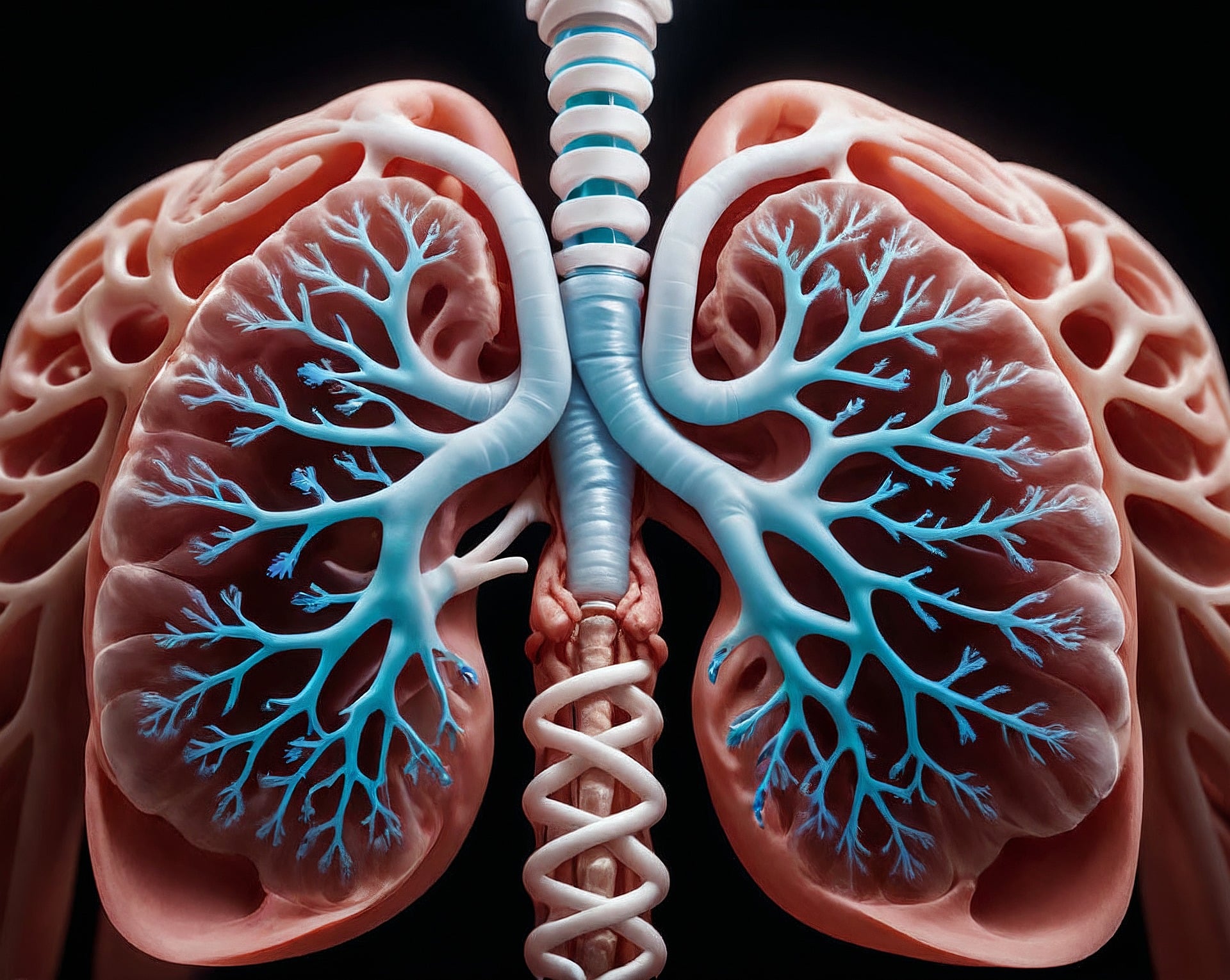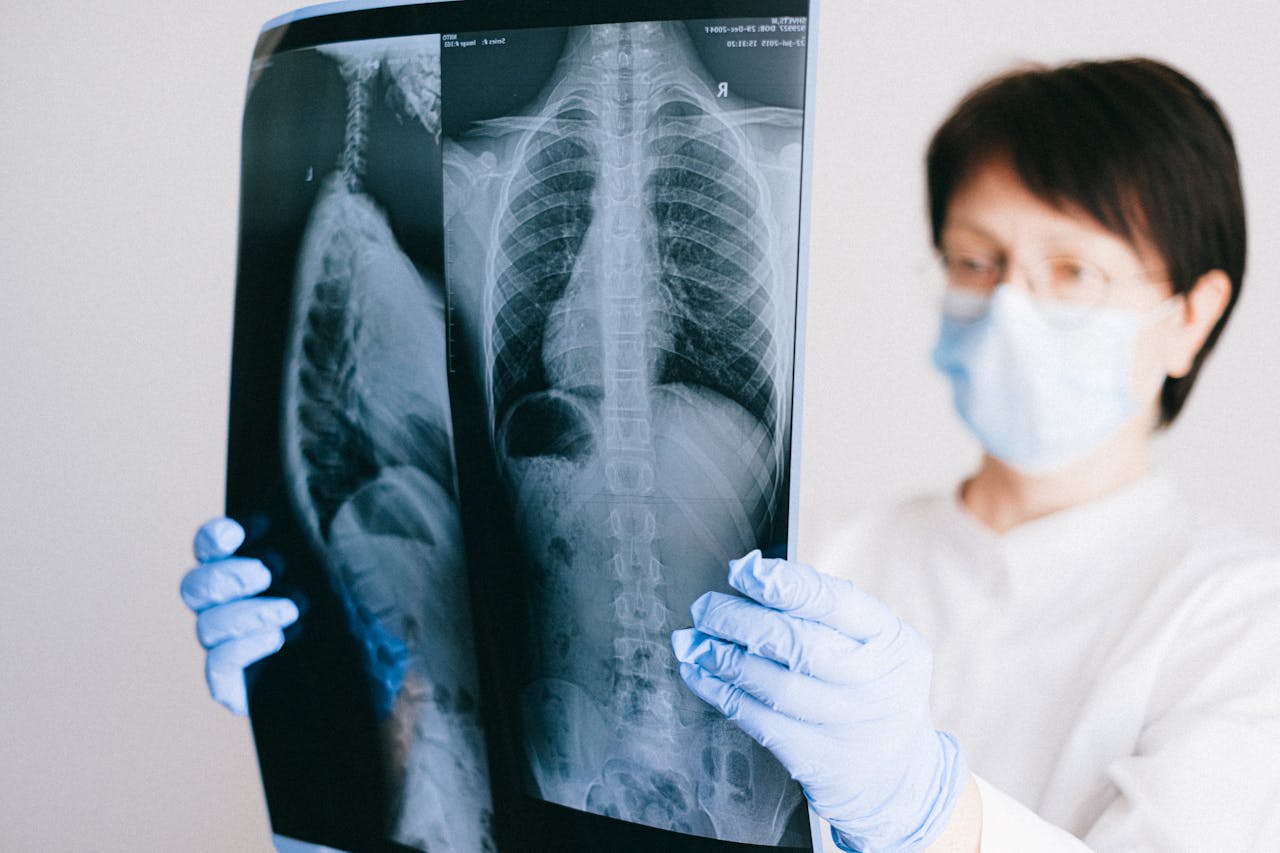Lung air leak refers to the accumulation of air in the chest cavity due to a rupture in the lung. The accumulated air in the chest cavity impairs the lung’s ability to expand properly, making breathing difficult. Therefore, patients showing symptoms of lung air leak should promptly schedule an appointment with a thoracic surgery specialist.
What is Lung Air Leak – Pneumothorax?

Pneumothorax, or lung air leak, is the accumulation of air in the chest cavity and between the lung membranes. In some patients, bubbles called blebs can form on the lung surface, particularly in the upper part of the lung. These blebs, which may develop over time or exist congenitally, can burst and cause air to accumulate in the lungs.
What are the Symptoms of Lung Air Leak?
The symptoms of pneumothorax vary depending on the severity of the condition. However, the first symptom is typically a sudden and intense chest pain. Common complaints of patients with lung air leak include:
- Sudden and severe chest pain
- Shortness of breath
- Sudden drop in blood pressure
- Cough
- Bluish lips
- Shock in advanced cases
- Increased heart rate
- Back pain
How Does Lung Air Leak Occur?
The lungs facilitate oxygen entry into the body and blood circulation. However, if a rupture occurs for any reason, air leaks and accumulates between the lung tissue and chest wall. Over time, this air accumulation impedes the lung’s ability to expand and makes breathing difficult. Smokers are particularly at risk. Generally, trauma is a major cause of pneumothorax. Other causes include:
- Lung diseases such as pneumonia, tuberculosis, emphysema, sarcoidosis, cystic fibrosis, lung cancer, and other systemic diseases affecting multiple organs
- Chest injuries caused by impacts, falls, blunt force trauma, traffic accidents, stabbing or gunshot wounds, rib fractures penetrating the lung, bronchoscopy, biopsies, or CPR
Who is at Risk for Pneumothorax?
 Certain individuals are more prone to lung air leak. Contributing factors include smoking and genetic predispositions. Risk groups include:
Certain individuals are more prone to lung air leak. Contributing factors include smoking and genetic predispositions. Risk groups include:
- Thin, male smokers aged 20–40
- Those with a history of lung disease
- Patients with genetic disorders, especially alpha-1 antitrypsin deficiency
- Individuals exposed to pressure changes
- Patients on mechanical ventilators
How is Lung Air Leak Diagnosed?
A chest diseases specialist plays a critical role in diagnosing this condition. To determine the severity, the specialist evaluates patient complaints, underlying lung diseases, and any history of pneumothorax. Physical examination may reveal decreased or absent breathing sounds. Chest radiography is used to confirm the diagnosis and assess the extent of the air leak. In severe cases, the lung may collapse entirely, requiring emergency intervention.
Does Lung Air Leak Heal on Its Own?
Lung air leak is categorized into three types: spontaneous, secondary (caused by another condition), and iatrogenic (resulting from medical procedures or trauma). Mild cases may resolve spontaneously. However, advanced pneumothorax often requires medical treatment.
How is Lung Air Leak Treated?
To treat the condition, the accumulated air must be evacuated. Prof. Dr. Semih Halezeroğlu offers the most appropriate treatment based on the patient’s condition. Treatment methods include:
- Placement of a chest tube
- Aspiration with a needle to remove air
- Observation and oxygen therapy
- Surgical treatment
How is Lung Air Leak Surgery Performed?
 Surgery for lung air leak is performed in three ways:
Surgery for lung air leak is performed in three ways:
- Open surgery / Axillary thoracotomy
- Closed surgery / Video-assisted thoracoscopic surgery (Single PORT VATS)
- Pleurodesis
When is Surgery Necessary for Lung Air Leak?
In some cases, air accumulation in the lungs can lead to severe consequences, requiring surgery to evacuate the air. Surgery is necessary for patients who:
- Have prolonged air leaks
- Have only one lung
- Experience recurring pneumothorax
- Have bilateral pneumothorax
- Are in professions with a high risk of lung air leaks
FAQs
Air blasts occur in the lungs as a result of the bursting of air sacs produced as blebs or bullae in the lungs. The most frequently written questions about this condition are as follows;
1 – How Does Lung Air Leak Heal?
Treatment depends on the amount of air accumulated. Mild cases are monitored, while high levels of air leakage require oxygen therapy or drainage via chest tube insertion.
2 – Is Lung Air Leak Dangerous?
Pneumothorax can be life-threatening in severe cases, especially when it impairs the lung’s ability to expand and makes breathing difficult.
3 – Why Does Air Accumulate in the Lungs?
Conditions like emphysema and COPD are leading causes. Trauma from accidents or falls can also result in lung collapse.
4 – Does Pneumothorax Turn into Cancer?
Pneumothorax does not develop into cancer but can cause symptoms similar to those of cancer, leading to confusion.
5 – Does Pneumothorax Heal on Its Own?
Small-scale air leaks may resolve spontaneously, but most cases require medical intervention. For more details on treatment, contact Prof. Dr. Semih Halezeroğlu.



